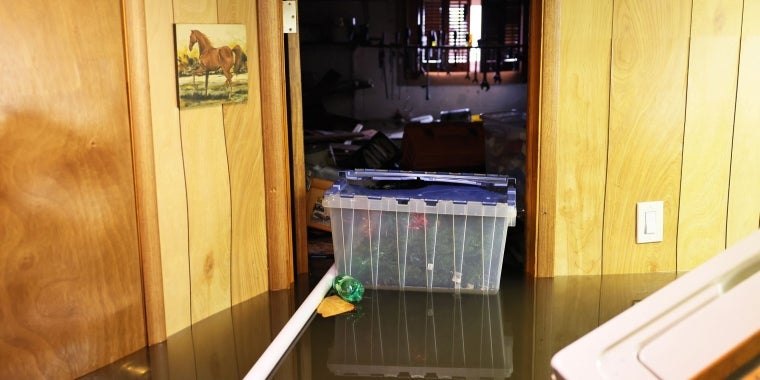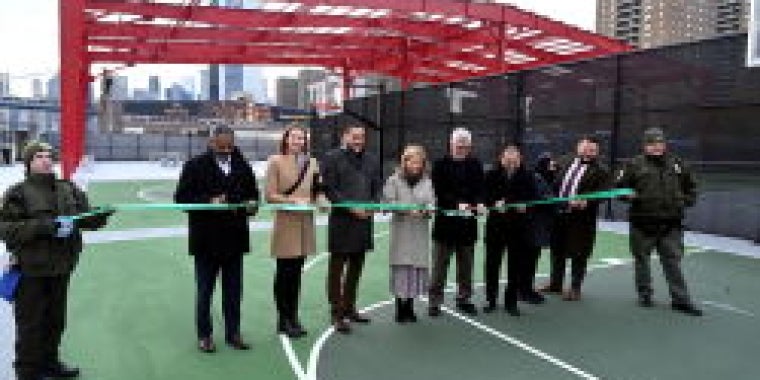Legislators aim to legalize underground basement apartments

This article appeared in the May 6th edition of Crains New York Business. To see the original article, click on the publication's link.
The state Senate and the Assembly are close to passing legislation that would legalize the underground market of unregulated basement apartments in New York City. Legislators say these apartments could be housing up to 100,000 people across the five boroughs and their unsafe conditions have put tenants at risk of death.
Manhattan Sen. Brian Kavanagh, who chairs the Senate Housing Committee, said his top priority before the legislative session ends early next month is to pass this bill. It would allow the city to grant amnesty to property owners who come forward and show they manage accessory dwelling units: underground basement spaces that have been illegally converted into apartments.
The unregulated nature of these basement apartments was widely blamed for the deaths of 11 residents in September during Hurricane Ida. Tenants-rights advocates have spent years urging the city to legalize basement apartments.
“Too many of our most vulnerable community members—low-income residents, immigrants, seniors—live in illegal basement units with no safety regulations and no protections,” said Jose Miranda, member of NYC Base, a coalition of community groups, planners and lawyers that advocates for legalizing the city’s basement apartments. “The time to act is now.”
Unauthorized basement and cellar units come with risks including exit issues, unsafe gas and electrical systems, and a lack of light and ventilation, the Department of Buildings says. Lawmakers say basement tenants were reluctant to report unsafe and dangerous conditions because they lived in unauthorized housing.
Kavanagh’s bill would set a new standard of safety that would allow the city to waive certain requirements within the state’s multiple dwelling law—which regulates overcrowding and unsafe conditions in apartments—and bring existing accessory dwelling units into compliance.
“The city has at various times tried to create programs to legalize that situation, grant amnesty to property tenants and make sure safety features are in place,” Kavanagh explained. “The thing is, state law constrains what they can do to make them legal.”
The bill would grant the Department of Buildings the authority to create exceptions and new building codes. The carve-outs would make it easier to regulate the apartments and declare them legal without being fully compliant, Kavanagh said.
“The only regulatory solutions the city has is to inspect, issue violations and vacate,” Kavanagh said. “That is not a reasonable solution for a city with a housing crisis.”
Manhattan Assemblyman Harvey Epstein is sponsoring a similar bill in the Assembly. The bills have support from moderate and progressive Democrats in both houses, including Queens Sen. Jessica Ramos, Manhattan Sen. Brad Hoylman and Assemblyman Richard Gottfried. Mayor Eric Adams, Comptroller Brad Lander, the Regional Plan Association and the Pratt Center for Community Development are also behind the legislation.
“Legalizing basements can’t happen at the city level alone ... which is why I am grateful for Assembly member Epstein and Sen. Kavanagh for their leadership and partnership in finally creating a pathway to helping more New Yorkers access safe and legal homes,” said Jessica Katz, the city's chief housing officer.
Hurricane horror story
“The flooding of last September proved just how important it is that basement units be safe, regulated homes,” Manhattan Assemblywoman Yuh-line Niou said. “The majority of tenants in these units are immigrants and people of color, and we must act to protect them from future storms.”
Kavanagh estimates 50,000 households with at least 100,000 people are living in illegal basement apartments across the five boroughs. The NYC Base Campaign says more than 300,000 such units could be converted into legal homes.
Under the state’s multiple dwelling law, the conversion process into legal two-family homes is expensive for landlords, which has compounded the proliferation of accessory dwelling units in recent years. The Kavnanagh-Epstein bill would grant the city authority to provide financial relief, rather than penalties, to landlords and tenant protections to those living in basement units.
“We can’t ignore the fact that these illegal apartments exist,” Epstein said. “We should recognize that they are an important part of our city's affordable housing stock and ensure they are safe for the residents.”
Former Mayor Bill de Blasio established a pilot program in 2018 to bring a section of unregulated basement units in East New York, Brooklyn, up to code, but he cut funding for the program by 92% in the pandemic.
High praise
Housing groups and tenants-rights advocates have praised the legislation.
The Pratt Center for Community Development, a community planning organization within the Pratt Institute, has been advocating for the legalization of accessory dwelling units for 15 years. Acting Director Lena Afridi argued that basement apartments are a common housing option for immigrant and working-class New Yorkers and carry an important source of income for small, independent landlords.
“We encourage legislators to pass this bill as a first step in providing New York City with the local control it needs to enact measures that bring these units up to code, creating safe housing for all,” Afridi said.
AARP applauded the bills.
“Cutting the red tape to ensure the city’s basement apartments are livable is the bare minimum we should do,” said Beth Finkel, the organization's state director.
Kavanagh said he expects a floor vote on the legislation before the session ends on June 2.

